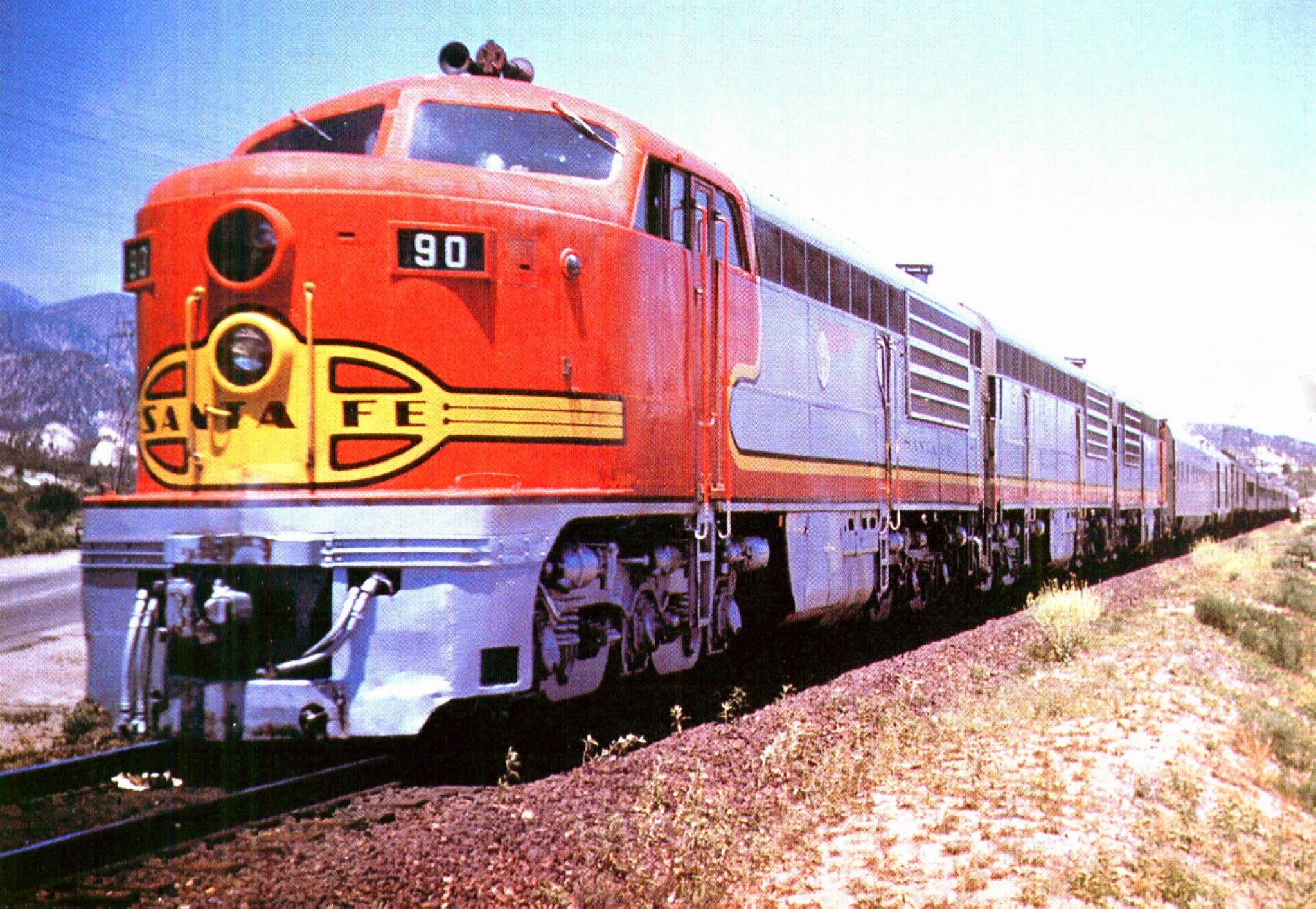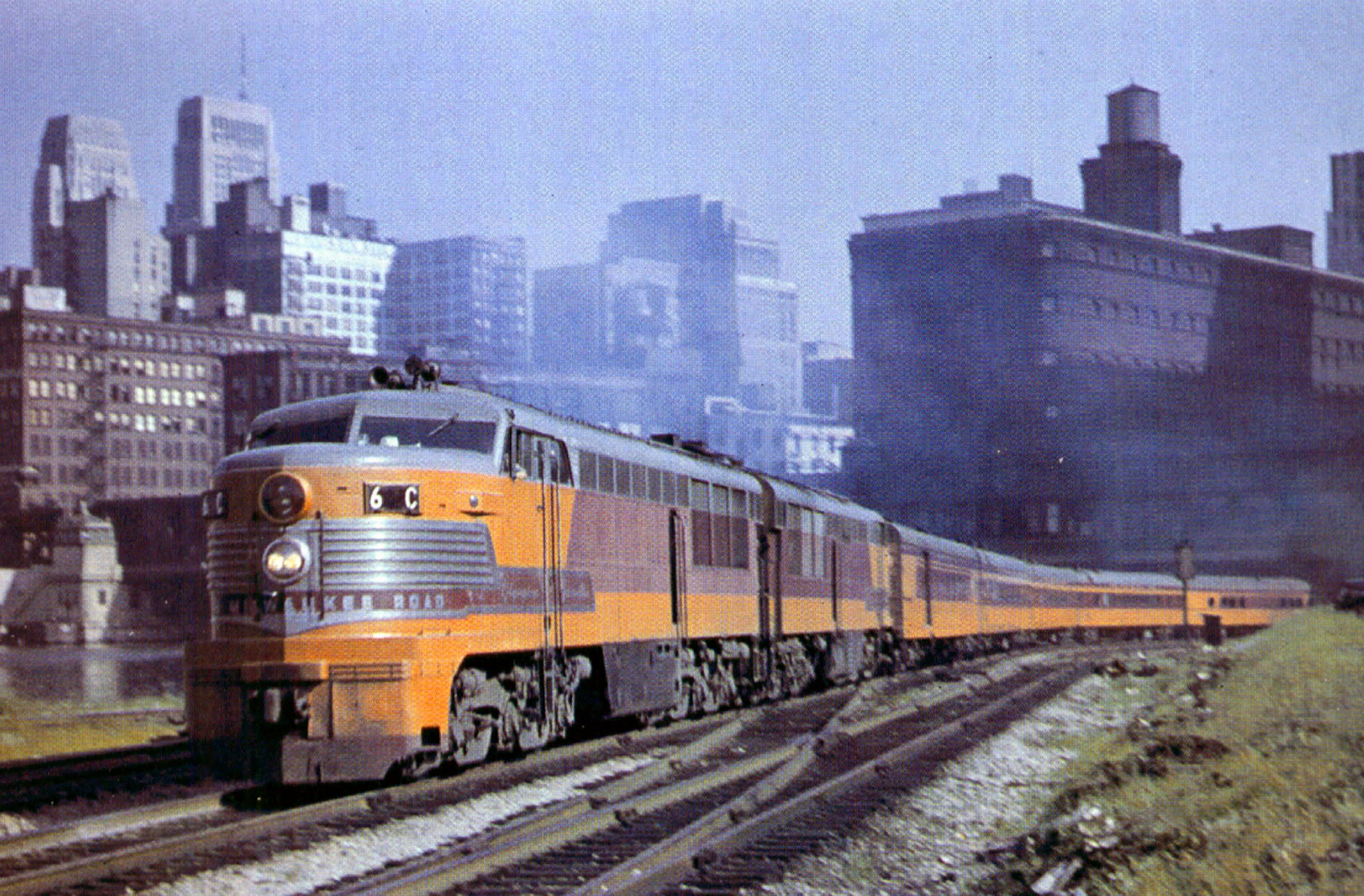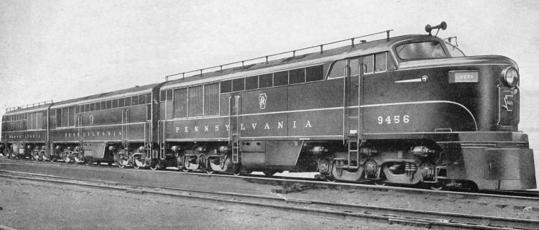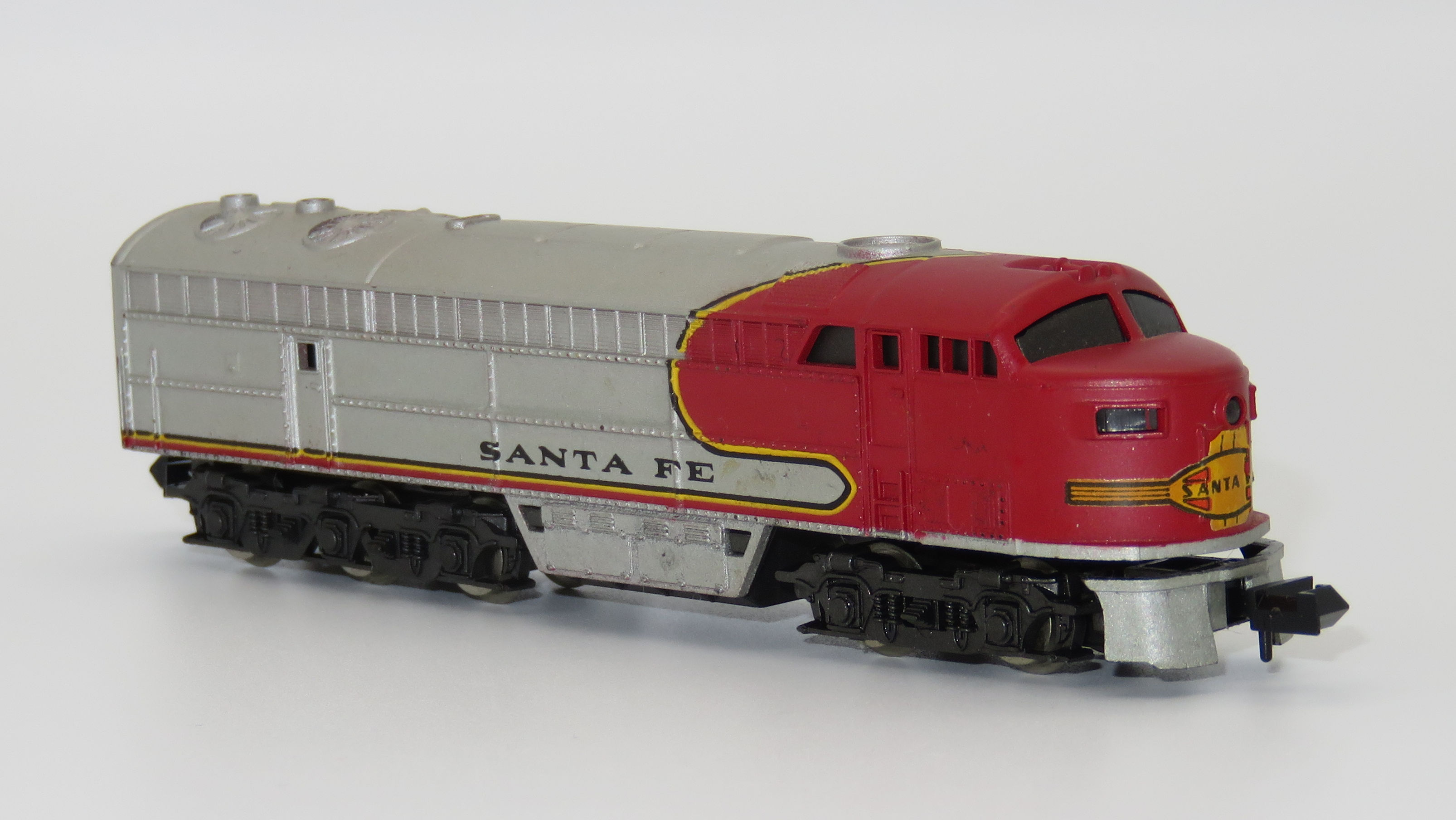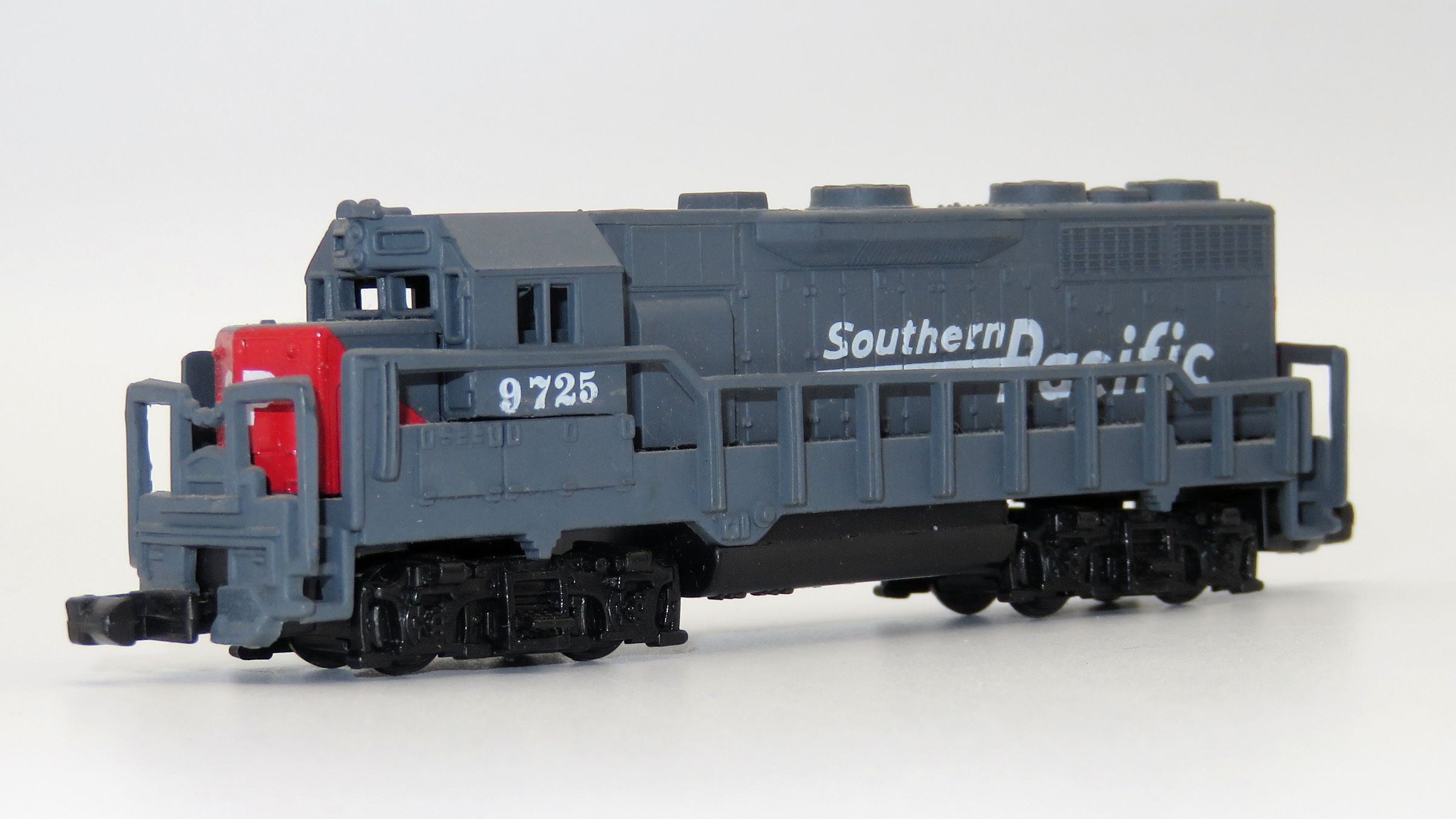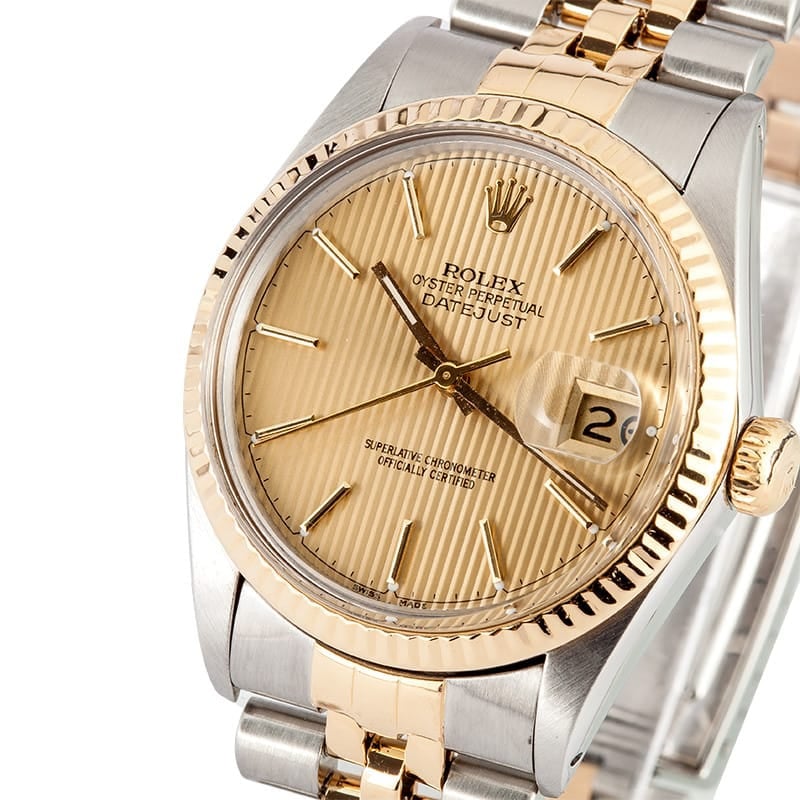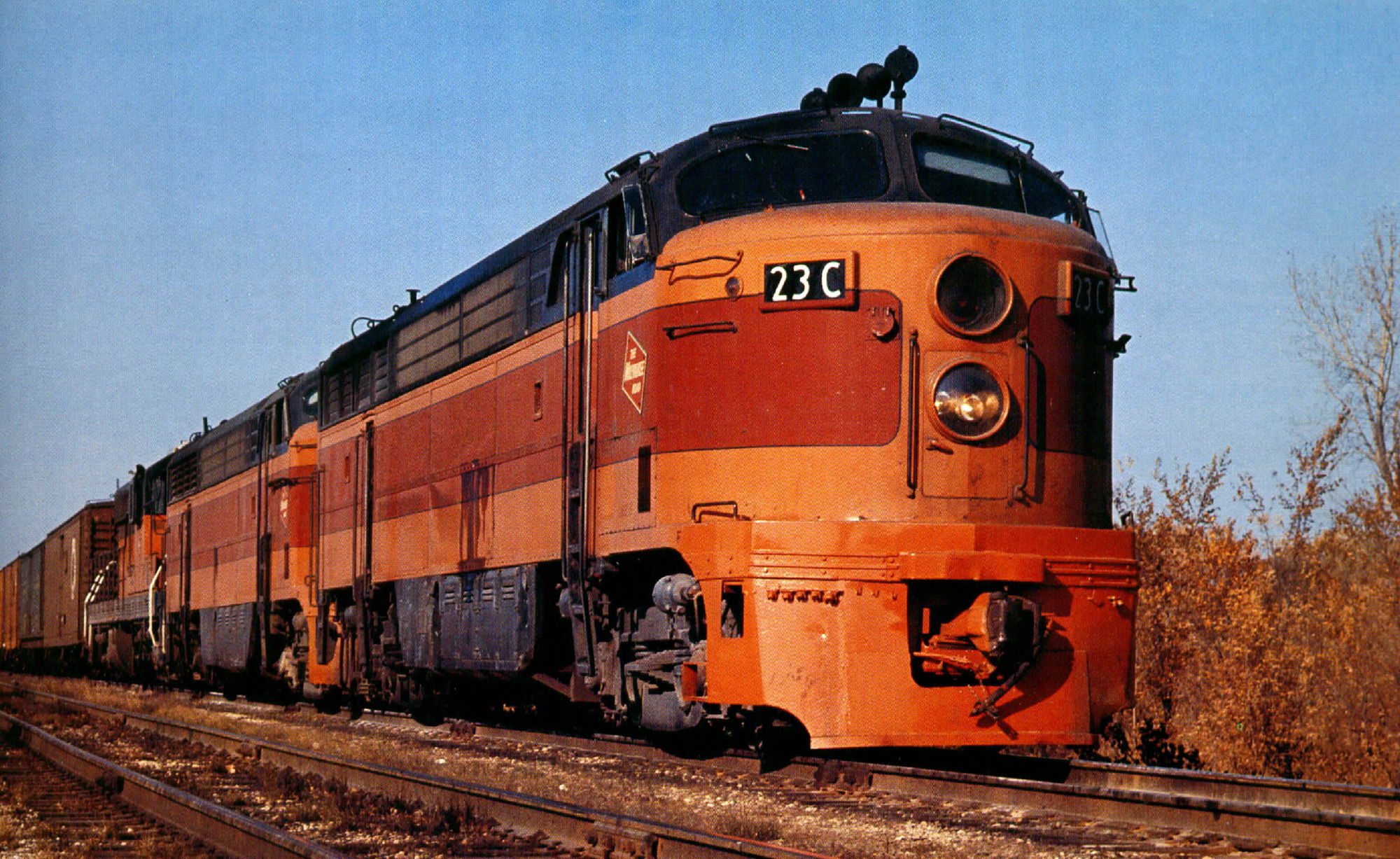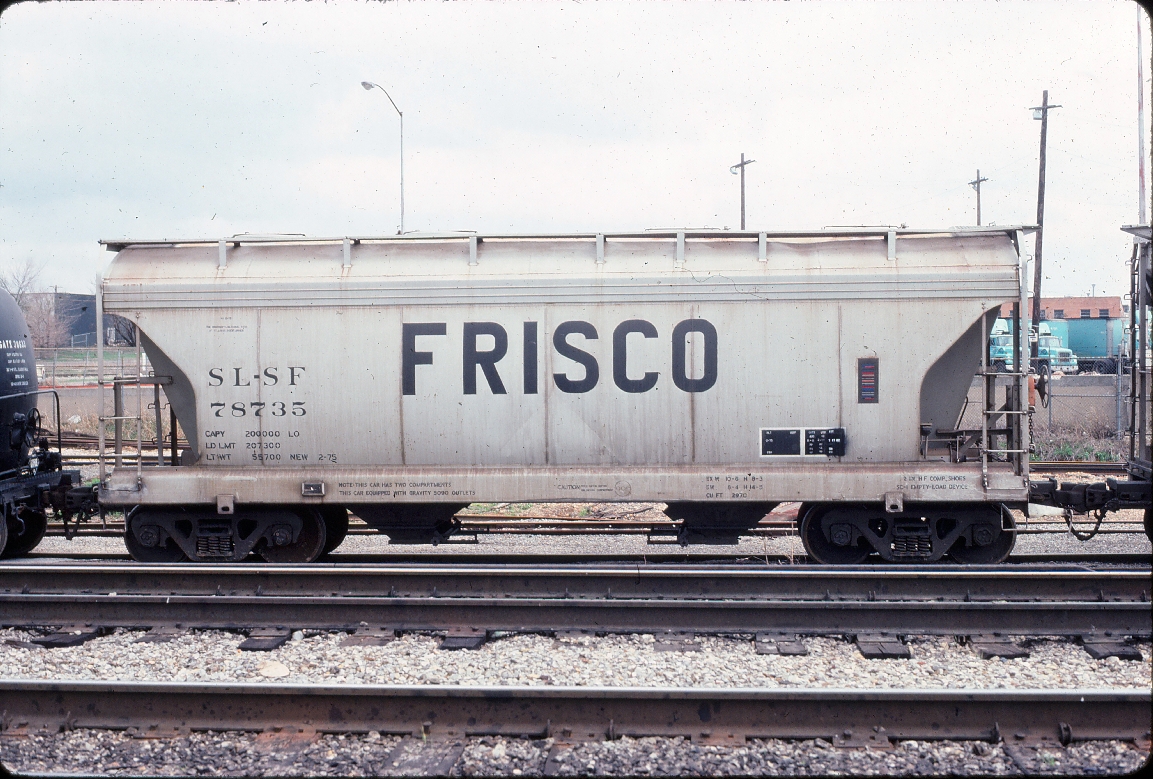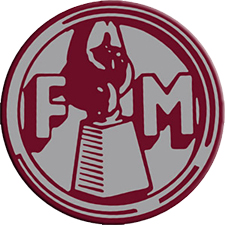Locomotive, Diesel, Fairbanks Morse, Erie-Built
| Name | Locomotive, Diesel, Fairbanks Morse, Erie-Built |
| Region | North America |
| Category | Rail |
| Type | Locomotive |
| SubType | Diesel |
| Variety | Fairbanks Morse Erie-Built |
| Manufacturer | Fairbanks Morse (Details) |
| Era | NA Era III: Transition (1939 - 1957) |
| Year(s) of Production | 1945-1949 |
History:
The Erie-built was the first streamlined, cab-equipped dual service diesel locomotive built by Fairbanks-Morse, introduced as direct competition to such models as the ALCO PA and EMD E-unit. As F-M lacked the space to manufacture the units in their own plant, the work was subcontracted out to General Electric, which produced the locomotives at its Erie, Pennsylvania, facility, thereby giving rise to the name "Erie-built."
The unit's 2,000 hp (1,500 kW), ten-cylinder opposed piston engine prime mover provided ample power to its A1A-A1A wheel set. F-M retained the services of renowned industrial designer Raymond Loewy to create a visually impressive car body for the Erie-built. The initial windshield configuration utilized rectangular glass panes, whereas those units manufactured after March, 1947 received windshields with a curved upper contour. Most units rode on conventional General Steel Castings trucks, but many were fitted with specialized, fabricated, assemblies. Eight of nine KCS Erie-builts were later repowered with an EMD 567 series diesel engine rated at 1750 horsepower.
82 cab-equipped lead A units and 29 cabless booster B units were built for American railroads between December 1945 and April 1949. Afterward, F-M continued to market dual service streamlined units under its Consolidated line of locomotives, more commonly referred to as "C-liners".
No FM Erie-Built units are known to survive today.
From Wikipedia
Read more on American-Rails.com
Full F-M Erie-Built data sheet on The Diesel Shop.
The unit's 2,000 hp (1,500 kW), ten-cylinder opposed piston engine prime mover provided ample power to its A1A-A1A wheel set. F-M retained the services of renowned industrial designer Raymond Loewy to create a visually impressive car body for the Erie-built. The initial windshield configuration utilized rectangular glass panes, whereas those units manufactured after March, 1947 received windshields with a curved upper contour. Most units rode on conventional General Steel Castings trucks, but many were fitted with specialized, fabricated, assemblies. Eight of nine KCS Erie-builts were later repowered with an EMD 567 series diesel engine rated at 1750 horsepower.
82 cab-equipped lead A units and 29 cabless booster B units were built for American railroads between December 1945 and April 1949. Afterward, F-M continued to market dual service streamlined units under its Consolidated line of locomotives, more commonly referred to as "C-liners".
No FM Erie-Built units are known to survive today.
From Wikipedia
Read more on American-Rails.com
Full F-M Erie-Built data sheet on The Diesel Shop.
Railroad/Company:
Fairbanks Morse and Company was an American manufacturing company in the late 19th and early 20th century. Originally a weighing scale manufacturer, it later diversified into pumps, engines, windmills, coffee grinders, farm tractors, feed mills, locomotives and industrial supplies until it was merged in 1958. It used the trade name Fairbanks-Morse.
Fairbanks Morse and Company merged with Penn-Texas Corporation in 1958 to form Fairbanks Whitney Corporation. One of the successors of the original company is Fairbanks Morse Engine, a subsidiary of EnPro Industries, that continues to develop and sell opposed piston (OP) engine technology for marine applications.
Fairbanks Morse was the last builder to enter the diesel locomotive market in 1939 and the first to exit in 1958. While its opposed-piston engine design was not as successful in locomotive application as with marine ships its locomotives were nevertheless revolutionary for their time, so revolutionary that it would take twenty years after the builder’s exit from the market for railroads to become interested in similar models!
From Wikipedia
Read more on American-Rail.com
Fairbanks Morse and Company merged with Penn-Texas Corporation in 1958 to form Fairbanks Whitney Corporation. One of the successors of the original company is Fairbanks Morse Engine, a subsidiary of EnPro Industries, that continues to develop and sell opposed piston (OP) engine technology for marine applications.
Fairbanks Morse was the last builder to enter the diesel locomotive market in 1939 and the first to exit in 1958. While its opposed-piston engine design was not as successful in locomotive application as with marine ships its locomotives were nevertheless revolutionary for their time, so revolutionary that it would take twenty years after the builder’s exit from the market for railroads to become interested in similar models!
From Wikipedia
Read more on American-Rail.com
Item Links:
We found: 1 different collections associated with
Rail - Locomotive - Fairbanks Morse Erie-Built
- Collection N Scale Model Trains: 20 different items
Item created by: Alain LM
on 2018-07-08 16:00:41
Last edited by: Alain LM on 2018-07-08 16:13:42
If you see errors or missing data in this entry, please feel free to log in and edit it. Anyone with a Gmail account can log in instantly.
Last edited by: Alain LM on 2018-07-08 16:13:42
If you see errors or missing data in this entry, please feel free to log in and edit it. Anyone with a Gmail account can log in instantly.


